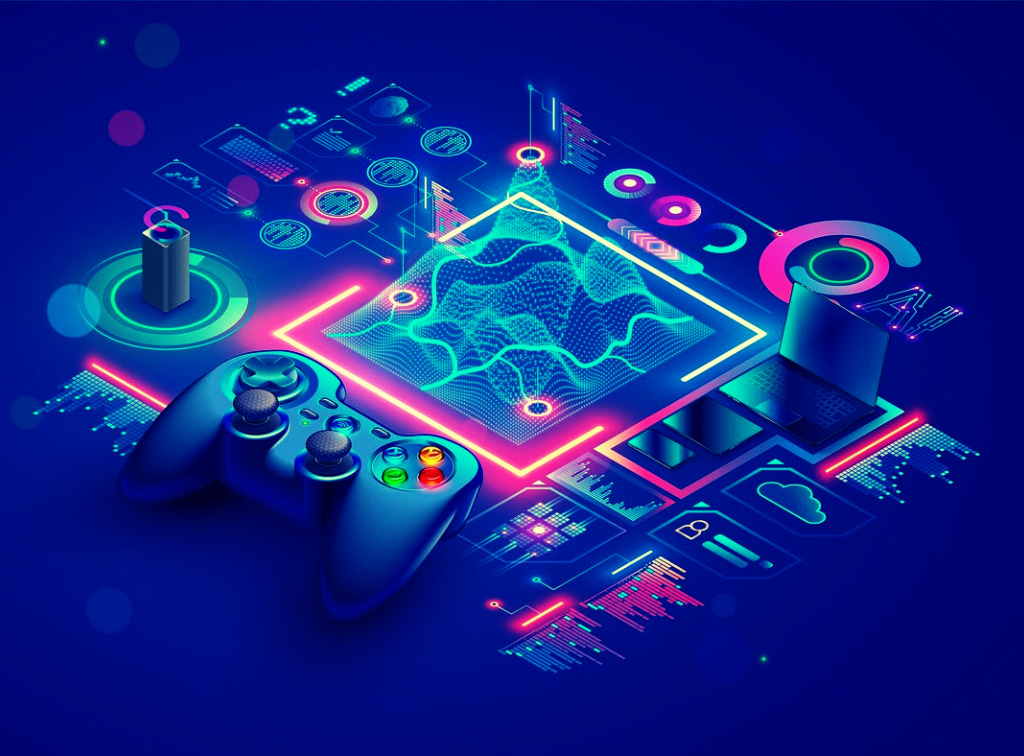The rapid advances in technology have revolutionized various industries, and the realm of gaming is no exception. Artificial Intelligence (AI), in particular, has dramatically transformed and refined gaming experience. The integration of AI in gaming not only enriches the gameplay but also emphasizes more on enhancing engagement and immersive experiences. As we explore further, we can unveil the significant role that AI will play in shaping the future of gaming.

The Emergence of AI in Modern Gaming: A Revolution
The advent of AI has transformed the gaming landscape. AI applications are not limited to enhancing gaming graphics and hardware, but they are pushing boundaries to improve gaming experiences by adding depth to the games. For instance, incorporating AI in games has led to the evolution of advanced non-playable characters (NPCs) that interact with players in intelligent and unpredictable ways, thereby creating a dynamic gaming environment.
Moreover, AI has facilitated the development of procedural content generation, a technique that allows games to dynamically create content such as landscapes, levels, and scenarios. This attribute provides an almost limitless diversification in gameplay, offering a unique experience each time the game is played. AI also empowers game developers to understand players’ behavior, preferences, and past actions, thereby helping them create personalized gaming experiences.
AI is also offloading the development process from game developers. For instance, neural networks are being used to automate certain time-consuming processes such as creating high-fidelity textures, lighting effects or even entire game levels, allowing developers to focus on more innovative aspects of game design.
Consistent improvements in AI algorithms have also fueled the progression in gaming realism. Developers have started leveraging Artificial Neural Networks (ANN) and physics-based models to develop realistic movements and behaviors for both characters and items in the games. This has laid the groundwork for complex and immersive virtual environments that make gaming experiences more engaging.
One of the most significant developments in AI-powered gaming is the emergence of voice recognition technology. The introduction of AI-powered voice assistants to gaming platforms has facilitated more intimate and seamless game interactions, making games more immersive, adaptive, and interactive than ever.
AI’s Influence: Forging the Future Path of Gaming
Looking forward, it’s apparent that AI is set to fundamentally alter the trajectory of the gaming industry. Virtual Reality (VR) and Augmented Reality (AR) games that use AI to create interactive and realistic 3D environments will continue to grow. These AI-powered VR and AR games will merge the line between the physical and virtual worlds, providing gamers with an unparalleled gaming experience.
Machine learning is another AI subfield that will have a profound impact on the future of gaming. With Machine learning, gaming systems can learn from the players’ choices and actions to adapt the gameplay, difficulty levels, or the storyline accordingly. By doing so, each player will have a unique and personalized gaming experience.
In a broader context, AI’s influence extends to esports, where AI algorithms can analyze player strategies and tactics in competitive gaming. Thus, AI could potentially play an instrumental role in shaping competitive esports, bringing an unprecedented level of strategy and skill to these popular gaming tournaments.

Furthermore, the fusion of AI and cloud technology will enable gamers to enjoy high-quality games with demanding graphics on budget devices. This is because the demanding computation tasks will be performed in the cloud, meaning device specifications will no longer limit the gaming experience.
AI also has the potential to revolutionize the monetization strategies in the gaming industry. AI-powered data analytics can provide insights on player behavior and preferences. These insights can then be used to offer personalized ads and in-game purchases, in turn boosting the game revenues.
Finally, the incorporation of AI-powered User Generated Content (UGC) allows players to create and share their gameplay, levels, or scenarios, which could potentially make games infinitely diverse and replayable.
In conclusion, AI’s immense potential has started a new era in gaming, bringing more immersive, interactive and personalized experiences for gamers. The revolutionary impact of AI in gaming extends from the development process to gameplay and monetization strategies. As AI continues to evolve and permeate deeper into the gaming industry, we can expect a future where games will not be a mere form of entertainment, but also a rich, personalized, and continually evolving experience.
Ainu Token aims to offer impartial and trustworthy information on cryptocurrency, finance, trading, and shares. However, we don't provide financial advice and recommend users to conduct their own studies and thorough checks.



Comments (No)